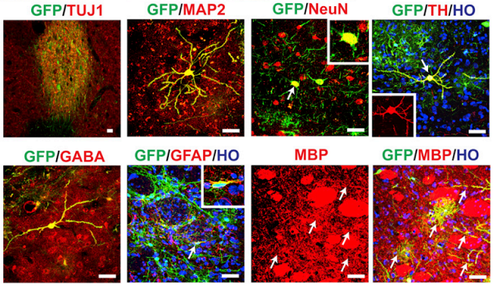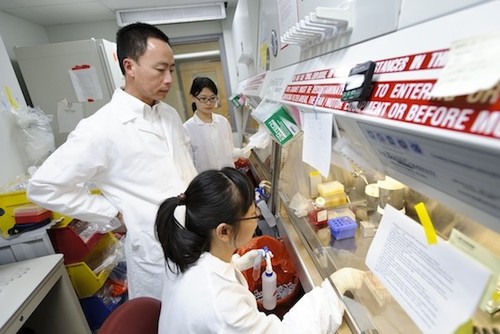iPS Cells Transplantation Leads To Personalized Regenerative Medicine

Researchers from the University of Wisconsin-Madison have succeeded in transplanting neural cells derived from a monkey’s skin into its brain and observeed the cells develop into several types of mature brain cells. The cells were implanted in the three rhesus monkeys from the Wisconsin National Primate Research Center “using a state-of-the-art surgical procedure” guided by an MRI image. The monkeys used in the study had a lesion in a brain region that causes the movement disorder Parkinson’s disease, diagnosed in 60,000 patients every year. The transplanted cells came from induced pluripotent stem cells (iPS cells), which can, like embryonic stem cells, develop into virtually any cell in the body. The group pioneering the use of iPS cells at the Waisman Center on the UW-Madison campus was lead by Su-Chun Zhang, a professor of neuroscience at the University of Wisconsin-Madison, who was the first in the world to derive neural cells from embryonic stem cells and then iPS cells. The main problem with cell transplants is immune rejection, but in this case there were no signs of it, since skin cells were not alien tissue. After six months, the cells looked entirely normal; the graft could only be seen under the fluorescent microscope, because the cells had been initially tagged with a fluorescent protein. The stem cell transplantation may result in the development of cancer, but the cells matured correctly, and proved to be not cancerous, which is also a positive feature. The new study is a proof-of-principle for the concept of personalized medicine, where treatments are designed for each individual; moreover it signifies a huge step forward that may benefit human patients suffering from several diseases.
Via:33rdsquare.com

| Tweet |











